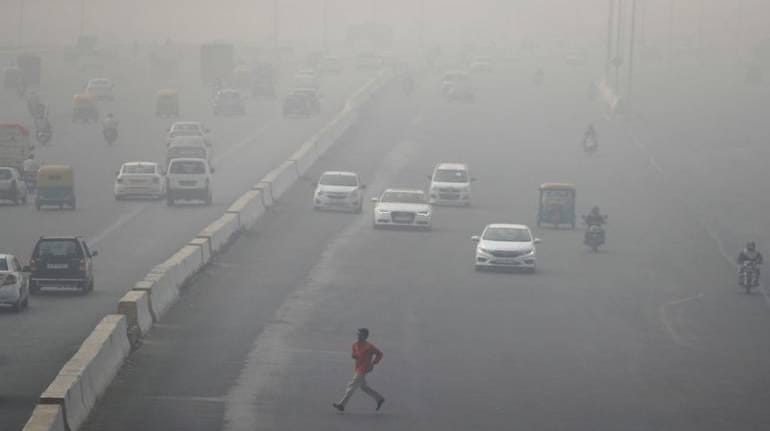



A recent report by the Energy Policy Institute at the University of Chicago suggests that India is the second-most polluted country in the world, with almost all its people living in areas where the annual average particulate level exceeds World Health Organization (WHO) guidelines. Pollution caused by fossil fuel vehicular exhaust is a big part of the problem, contributing a significant percentage of greenhouse emissions, and a much larger percentage of carbon monoxide pollution.
Are EVs The Solution?
Electric mobility is touted by many as a long-term solution to this problem, and the Government of India is trying to incentivise the creation of a robust ecosystem for electric vehicles (EVs). It is, however, improbable that EVs will ever replace petrol and diesel vehicles in sufficiently large numbers to achieve the desired reduction in vehicular pollution.
Moreover, EVs do not exactly come with zero environmental impact; the additional electricity for a nationwide EV fleet will majorly come from thermal power plants, which are major contributors to air pollution and greenhouse gas emissions.
India should not rely entirely on EVs to address its pollution problems, but adopt multiple solutions that work for the existing vehicular fleet as well. The use of biofuels, such as ethanol, provide an extremely viable and eco-friendly solution. Ethanol-blended fuel makes internal combustion highly efficient; it reduces the formation of greenhouse gases up to 90 percent as compared to conventional fuels, and reduces particulate pollutants to zero. Moreover, it does not require any design changes to the existing internal combustion engines.
The Benefits Of Ethanol
The EV ecosystem is presently at a nascent, nebulous stage in India. Ethanol is a low-hanging fruit, with both environmental and economic benefits. India has been producing surplus sugarcane for many years now. This surplus yield can be diverted to produce ethanol. Doing so will generate additional income for farmers and more employment opportunities in rural areas.
Ethanol can be made from not only sugarcane but also waste feedstock such as corn, maize, potatoes, and rice. This waste feedstock is usually thrown away; using it for ethanol production can ensure that farmers get a price for it.
Domestic biofuel production and consumption can also help in offsetting oil imports and enhancing demand for important agricultural commodities. The use of biofuels can reduce emissions from sectors such as heavy-duty vehicles, aviation, and shipping, which are difficult to bring into the ambit of low-carbon electricity.
India can look to Brazil for proof of the efficacy of ethanol. Brazil implemented an ethanol blending programme over 40 years ago, and the results are there for all to see. Air pollution levels in São Paulo have halved in the past 20 years despite an 80 percent increase in car fleet. Besides a large number of flex-fuel vehicles that can run on either ethanol or petrol, Brazil also has a 27 percent blend of ethanol with petrol — significantly higher than India, where it is 5.8 percent. Meanwhile, Brazil substituted 48 percent of its oil requirements with ethanol last year.
The Way Ahead
Clearly, ethanol can be a game-changer for not just transportation and environment, but also for agriculture and trade. However, there are some things that need to fall into place first.
It is important to have a robust biofuel policy in terms of pricing, procurement, and blending. This will attract investments to scale up ethanol production and make prices of sugar and ethanol competitive. Sugar mills must be incentivised to redirect sugarcane juice and other by-products towards ethanol production. It requires only a marginal investment to set up distilleries attached to sugar mills.
At a national level, a tax differentiation should be provided between fossil fuels and renewable fuels to encourage the use of ethanol. Such measures, together with mandatory ethanol blending, could help India become one of the largest producers and consumers of ethanol in the world. The National Policy on Biofuels, introduced by the government in 2018, is significant in this context. It has set a target of 10 percent ethanol blending with vehicle fuel by the year 2022, and 20 percent by 2030. It will also play an important role in Prime Minister Narendra Modi’s goal of making India a $5 trillion economy.
India must keep its sights trained on a future where mobility will have a healthy and sustainable mix of EVs, hybrids, and biofuel-based vehicles.
Eduardo Leão De Sousa is Executive Director, UNICA, and Hemant Jambhekar is President, Green Crude Biofuel Foundation and Director, Purti Power & Sugar Limited. Views are personal.
Discover the latest Business News, Sensex, and Nifty updates. Obtain Personal Finance insights, tax queries, and expert opinions on Moneycontrol or download the Moneycontrol App to stay updated!
Find the best of Al News in one place, specially curated for you every weekend.
Stay on top of the latest tech trends and biggest startup news.